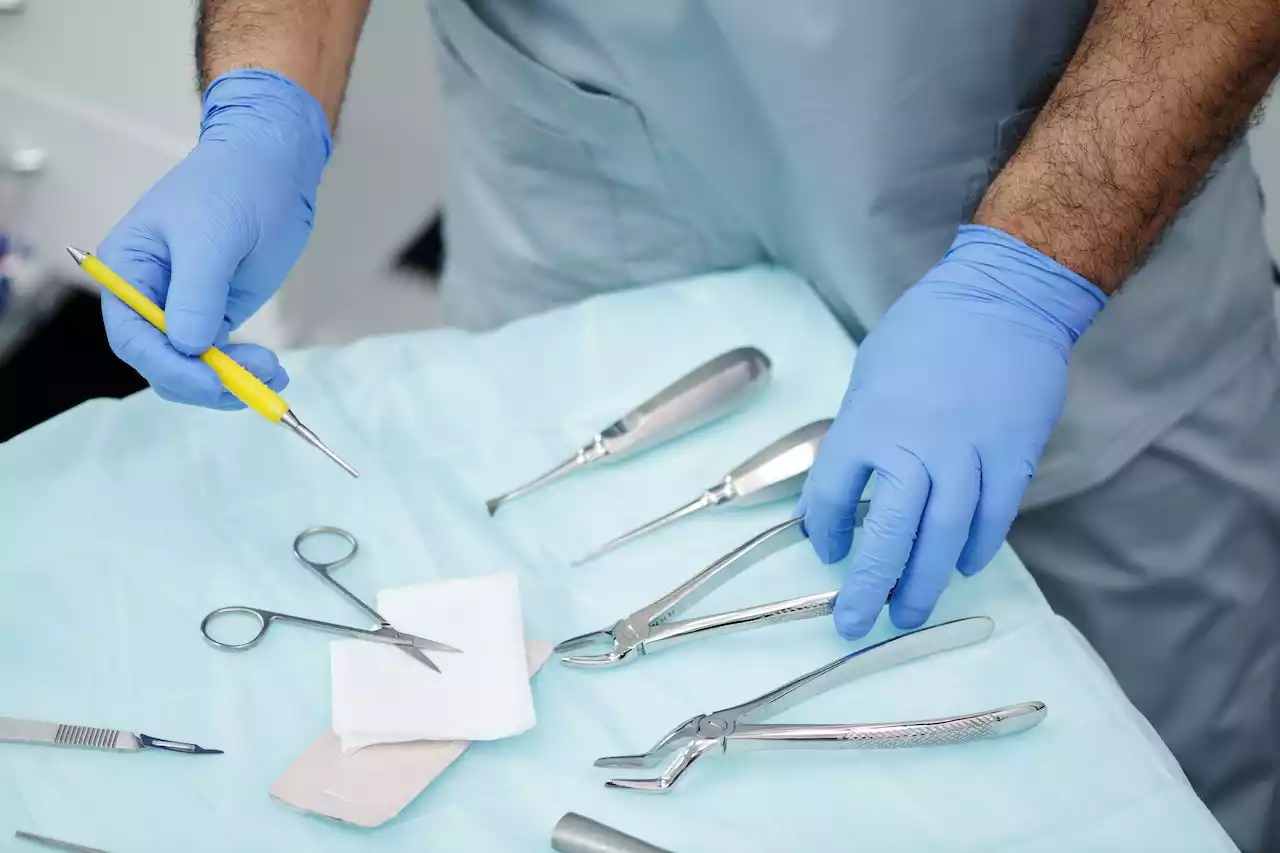Brushing after meals has long been a debated topic in dental care. Some swear by it, believing it keeps their...
Read More
Dental care is essential to maintaining good oral health, yet many people neglect this aspect of their overall health. What is basic dental care? Basic dental care includes regular check-ups, cleanings, and preventative maintenance. However, it can be difficult to know exactly what basic dental care entails and why it’s so important.
Basic dental care is the foundation of good oral health. It includes regular cleanings, check-ups, and daily brushing and flossing. Neglecting basic dental care can lead to plaque build-up, cavities, gum disease, and even tooth loss. By being proactive and maintaining good dental hygiene habits, you can prevent these issues and ensure a lifetime of healthy teeth and gums.
What Is Basic Dental Care? Just Brushing and Flossing?
Well no, but daily brushing and flossing are essential for maintaining good oral hygiene. When it comes to brushing, the American Dental Association (ADA) recommends using a soft-bristled brush and fluoride toothpaste. It’s important to hold the brush at a 45-degree angle to your teeth and use gentle circular motions to brush each tooth thoroughly. Don’t forget to brush your tongue and the roof of your mouth as well, as this helps eliminate bacteria and freshen your breath.
Now, let’s talk about flossing. Basic dental care includes effective flossing techniques. The ADA suggests using about 18 inches of dental floss, wrapping it around your fingers and holding it tightly between your thumbs and forefingers. Gently slide the floss up and down between your teeth, curving it in a C-shape around each tooth and sliding it under the gumline. Remember to use a fresh section of floss for each tooth and area. These simple yet vital steps help remove plaque and debris from hard-to-reach areas, ensuring optimal oral health.
By incorporating these practices into your daily routine, you are taking a proactive approach to basic dental care, which is crucial for preventing oral issues such as plaque build-up, cavities, and gum disease. So, don’t underestimate the power of daily brushing and flossing—it’s the foundation for a healthy smile!
Toothpaste and Mouthwash: Choosing and Using the Right Products
Choosing the right toothpaste and mouthwash can help to give your oral care routine an extra boost. Toothpaste comes in a variety of forms, including paste, gel, and powder. Some toothpastes are designed to address specific dental concerns, such as whitening, sensitivity, or gum health.
Fluoride Toothpaste
Fluoride toothpaste helps to strengthen enamel and fight cavities. Look for toothpastes that have the ADA seal of approval, which indicates that the product has been tested and shown to be effective.
Mouthwash
Mouthwash can help to freshen breath, kill bacteria, and prevent gum disease. Some mouthwashes contain alcohol, which can cause dry mouth in some people. If you have sensitive teeth or gums, look for alcohol-free mouthwash.
Diet and Nutrition: Supporting Oral Health from the Inside Out
Did you know that what you eat and drink can have a profound impact on the health of your mouth? It’s fascinating how a healthy diet can play a pivotal role in preventing gum disease, tooth decay, and various dental problems. So, what exactly does basic dental care entail, you may wonder?
One of the fundamental aspects of maintaining good oral health is incorporating nutrient-rich foods into your daily diet. Calcium, for instance, is essential for strong teeth and bones. Foods like milk, cheese, and yogurt are excellent sources of calcium that help prevent tooth decay. Additionally, phosphorus, another crucial mineral, aids in strengthening and repairing tooth enamel. Including fish, poultry, and nuts in your meals can provide an ample supply of phosphorus. Furthermore, vitamin C plays a vital role in preventing gum disease, and you can find this essential vitamin abundantly in citrus fruits, kiwi, and strawberries.
While focusing on nourishing foods, it’s equally important to be mindful of sugary and acidic foods and drinks that can harm your teeth. Candies, sodas, sports drinks, and fruit juices, due to their high sugar and acid content, pose a risk to dental health. By embracing a balanced diet and limiting the consumption of sugary snacks and beverages, you can actively contribute to the well-being of your teeth and gums.
Now, let’s not forget the significance of hydration. Drinking an ample amount of water is not only crucial for overall health but also for good oral health. Water acts as a natural cleanser, washing away food particles and bacteria that can lead to gum disease and bad breath. Fluoridated water, in particular, can further assist in preventing tooth decay by strengthening tooth enamel. However, if you predominantly consume bottled water or well water without fluoride, it’s advisable to consult your dentist regarding the potential benefits of a fluoride supplement.
By embracing a diet that promotes oral health, you are essentially practicing the basics of dental care. Through a thoughtful selection of nutritious foods and good hydration habits, you can take proactive steps toward maintaining a healthy smile. Remember, what you eat and drink plays a significant role in supporting your oral well-being.
Preventive Measures: Professional Cleanings, Exams, and More
Preventive dental care, including basic dental care, is all about keeping your teeth and gums healthy and addressing dental problems early on, before they escalate. Regular dental checkups and cleanings are essential components of basic dental care.
Regular Dental Checkups: The Key to Early Detection
During a dental checkup, your dentist examines your mouth, teeth, and gums to identify signs of decay, gum disease, and other dental issues. X-rays may be taken to uncover hidden cavities or underlying problems. Detecting dental problems at an early stage is crucial in preventing discomfort and costly treatments in the future. Additionally, your dentist will provide guidance on oral hygiene practices and offer tips on how to keep your teeth and gums healthy between visits.
Dental Cleanings: Promoting Oral Health
Regular dental cleanings are vital for sustaining good oral health. These cleanings remove plaque and tartar buildup, which can contribute to gum disease and tooth decay. With specialized tools, your dental hygienist carefully cleans and polishes your teeth, leaving them feeling smooth and refreshed. Routine cleanings also aid in preventing bad breath and supporting overall oral health.
Fluoride Treatments and Sealants: Strengthening and Protecting Teeth
Fluoride treatments are an additional preventive measure to maintain strong and healthy teeth. A fluoride solution is applied to the teeth, helping to reinforce tooth enamel and prevent tooth decay. Dental sealants are another beneficial measure. These thin, plastic coatings are applied to the biting surfaces of the back teeth, creating a protective barrier between the tooth enamel and harmful bacteria, thus aiding in cavity prevention.
By incorporating these preventive measures, which encompass basic dental care, into your oral health routine, you can significantly reduce the risk of dental issues and ensure the long-term well-being of your teeth and gums. Regular checkups, cleanings, fluoride treatments, and sealants work together to establish a solid foundation for excellent oral health.
Children's Dental Care: Setting Healthy Habits from an Early Age
Basic dental care is important for people of all ages, but establishing good habits early on can help prevent common dental problems in adulthood. Children’s basic dental care involves specific challenges, such as teething and dental fear, but setting healthy habits from an early age can help minimize the risk of tooth decay and gum disease.
Caring for Infant Teeth
Babies begin to develop teeth around six months of age. To clean infant teeth, gently wipe them with a soft cloth or brush them with a small, soft-bristled toothbrush and water. Avoid giving babies sugary drinks or foods, which can lead to tooth decay.
Encouraging Good Dental Habits in Children
To instill good dental habits in children, set an example by practicing good dental hygiene yourself. Make brushing and flossing a fun family activity, and limit sugary or acidic drinks and snacks. Regular check-ups can also help catch and prevent dental problems early on.
The Importance of Basic Dental Care
It may seem obvious, but basic dental care is essential for maintaining good oral health. Neglecting oral hygiene can have serious consequences, such as cavities, gum disease, and even tooth loss. Poor dental hygiene can also lead to more severe health problems, such as diabetes, heart disease, and respiratory infections.
Not only is basic dental care important for preventing health problems, but it can also improve your quality of life. Good oral health can improve your self-esteem, as well as your ability to eat, speak, and smile confidently.
Preventative Care
Preventative care is a key component of basic dental care. This includes regular visits to the dentist for cleanings and checkups, as well as daily brushing and flossing. Preventative care can help identify and address problems early on, before they become more serious and expensive to treat.
In addition to regular dental visits, preventative care also involves making healthy lifestyle choices. Limiting sugary and acidic foods and drinks, avoiding tobacco products, and drinking plenty of water can all help maintain good oral health.
Cost of Dental Care
One barrier to obtaining basic dental care is the cost. Dental care can be expensive, especially for those without dental insurance. However, there are several options available for those who need affordable dental care.
Molar House, located in Tijuana, Mexico, stands as an exceptional and cost-effective choice when seeking a high-quality dentist in Tijuana. With a commitment to providing comprehensive dental care, we understand that one barrier to accessing basic dental care is the associated cost, thats why we prioritize making dental care accessible.Our team of experienced dentists and staff is dedicated to delivering exceptional care while ensuring affordability.
It’s important to note that investing in dental care now can actually save money in the long run. Addressing dental problems early on can prevent more expensive and serious issues down the road. Don’t let cost be a barrier to achieving a healthy and beautiful smile. Contact us today to learn more about our services and schedule your appointment.
Remember, taking care of your teeth and gums not only benefits your oral health but also your overall well-being. So make it a habit to practice good dental hygiene every day, and don’t hesitate to seek professional dental help when needed.
Other Posts
Veneers Maintenance Strategies for Lifelong Radiance
Veneers are a popular cosmetic dental treatment that can transform a person’s smile. However, maintaining these dental enhancements is crucial...
Read MoreLearn About the Different Types of Dental Implants
Dive into the world of dental implants and discover a range of options designed to fit your specific needs. From...
Read MoreAfter Dental Implants Care Tips You Need To Know
Are you considering dental implants or have recently undergone the procedure? Congratulations on taking steps towards a healthier, more confident...
Read MoreOur Top Services
Contact Us
Social Media





